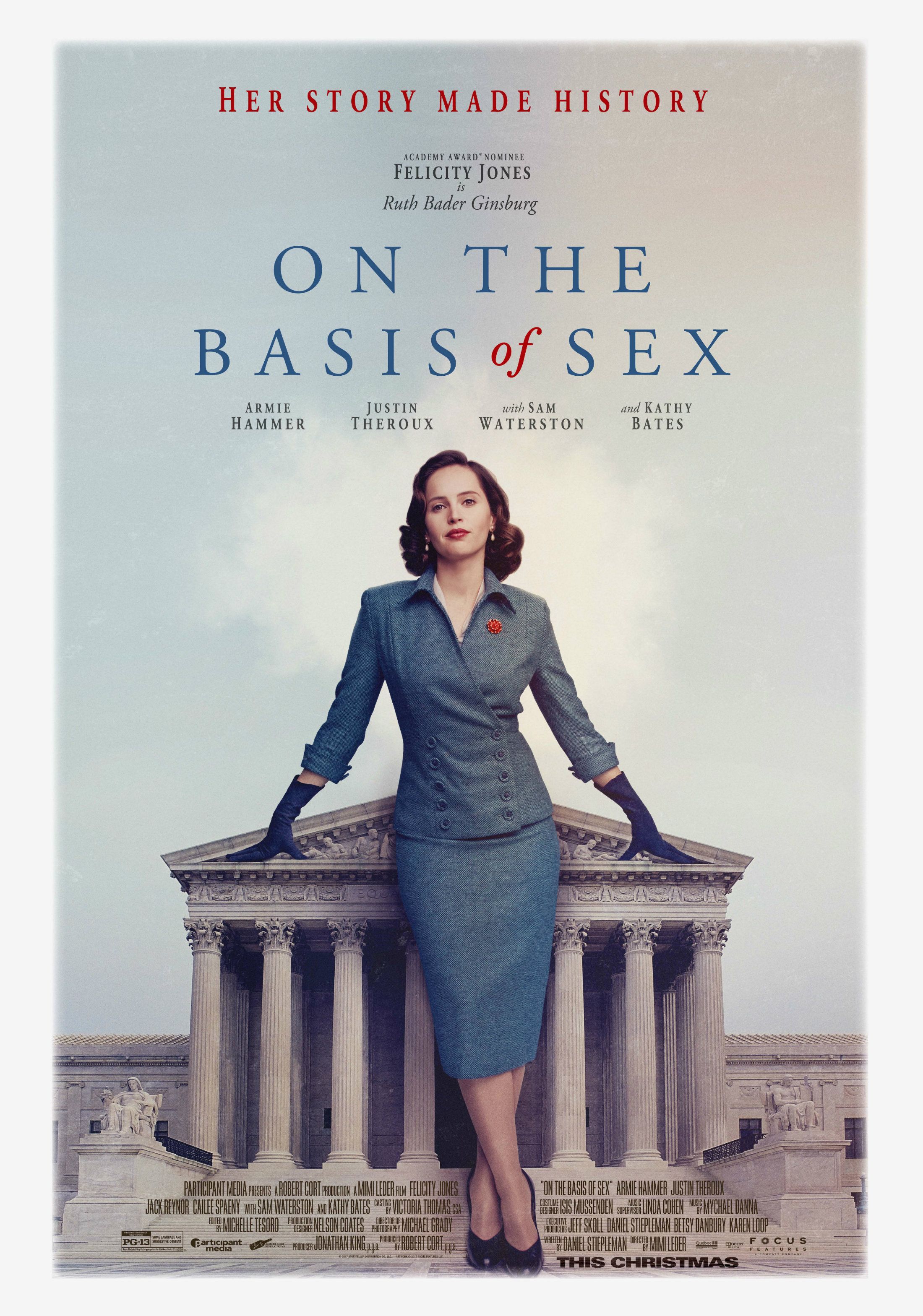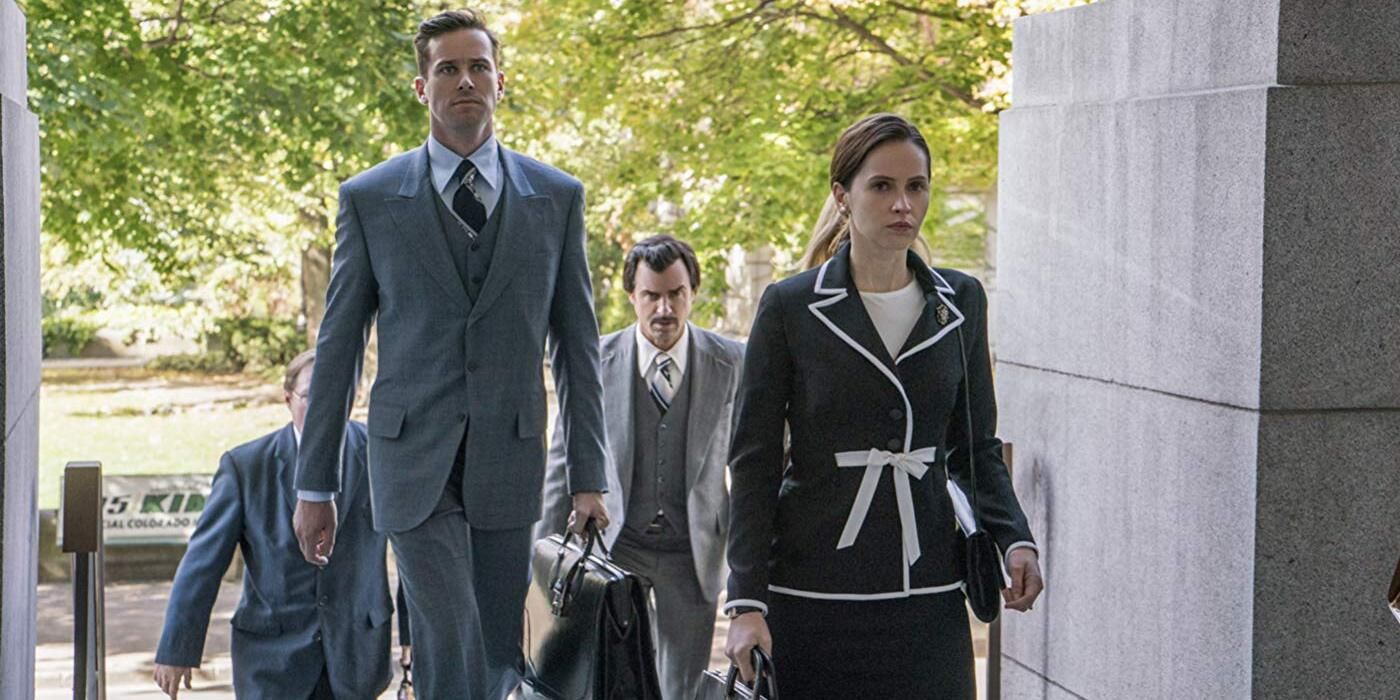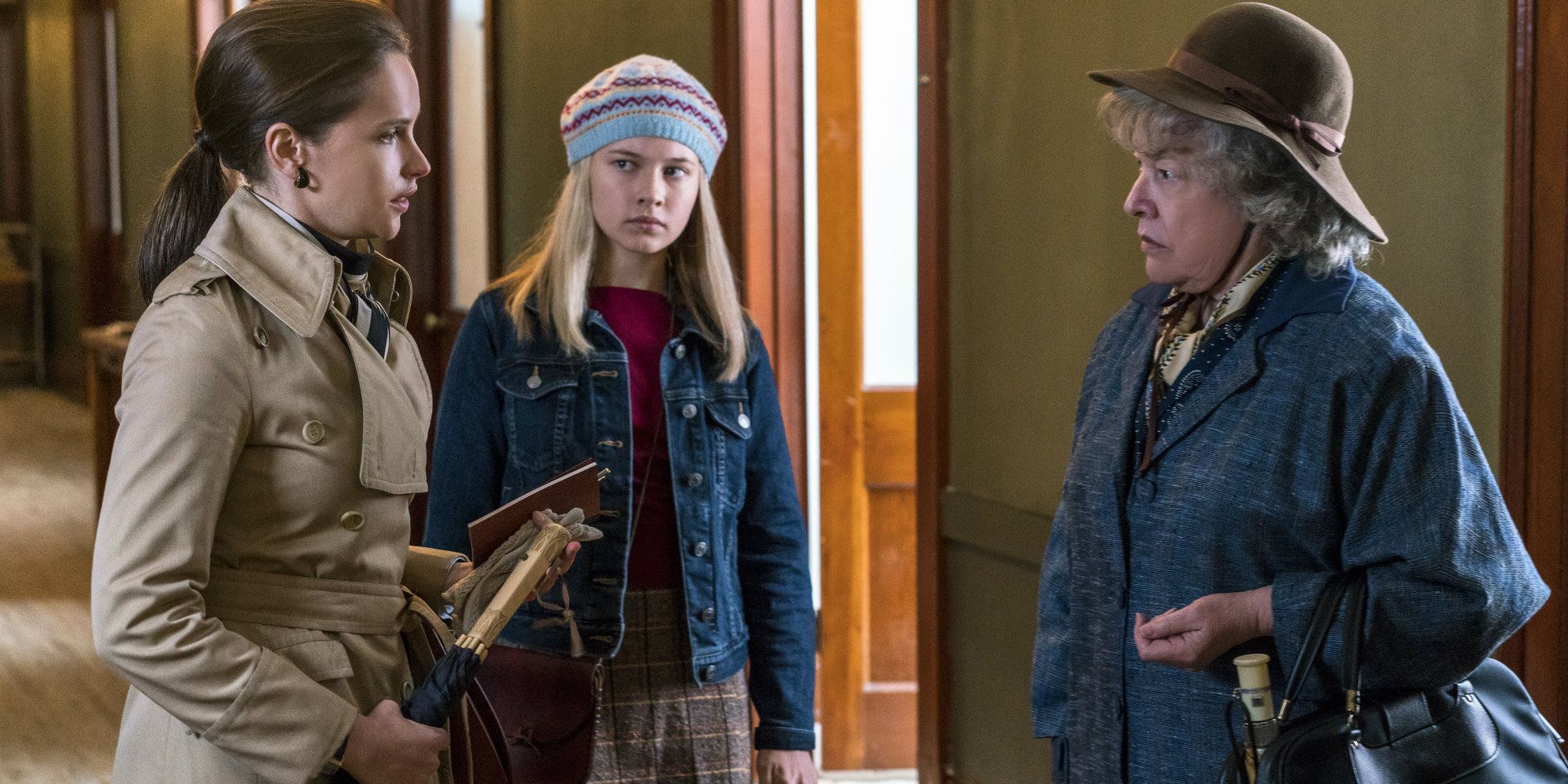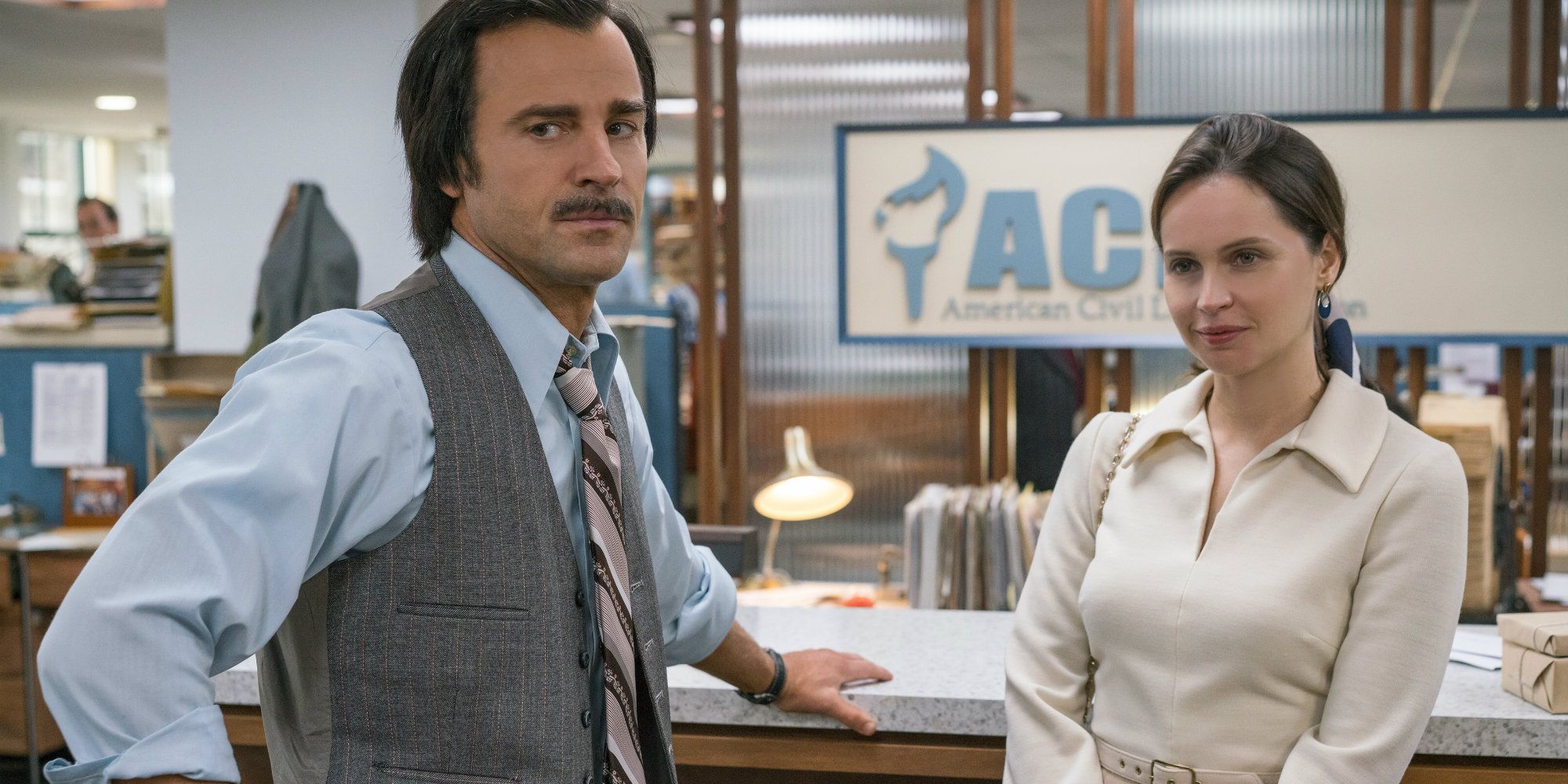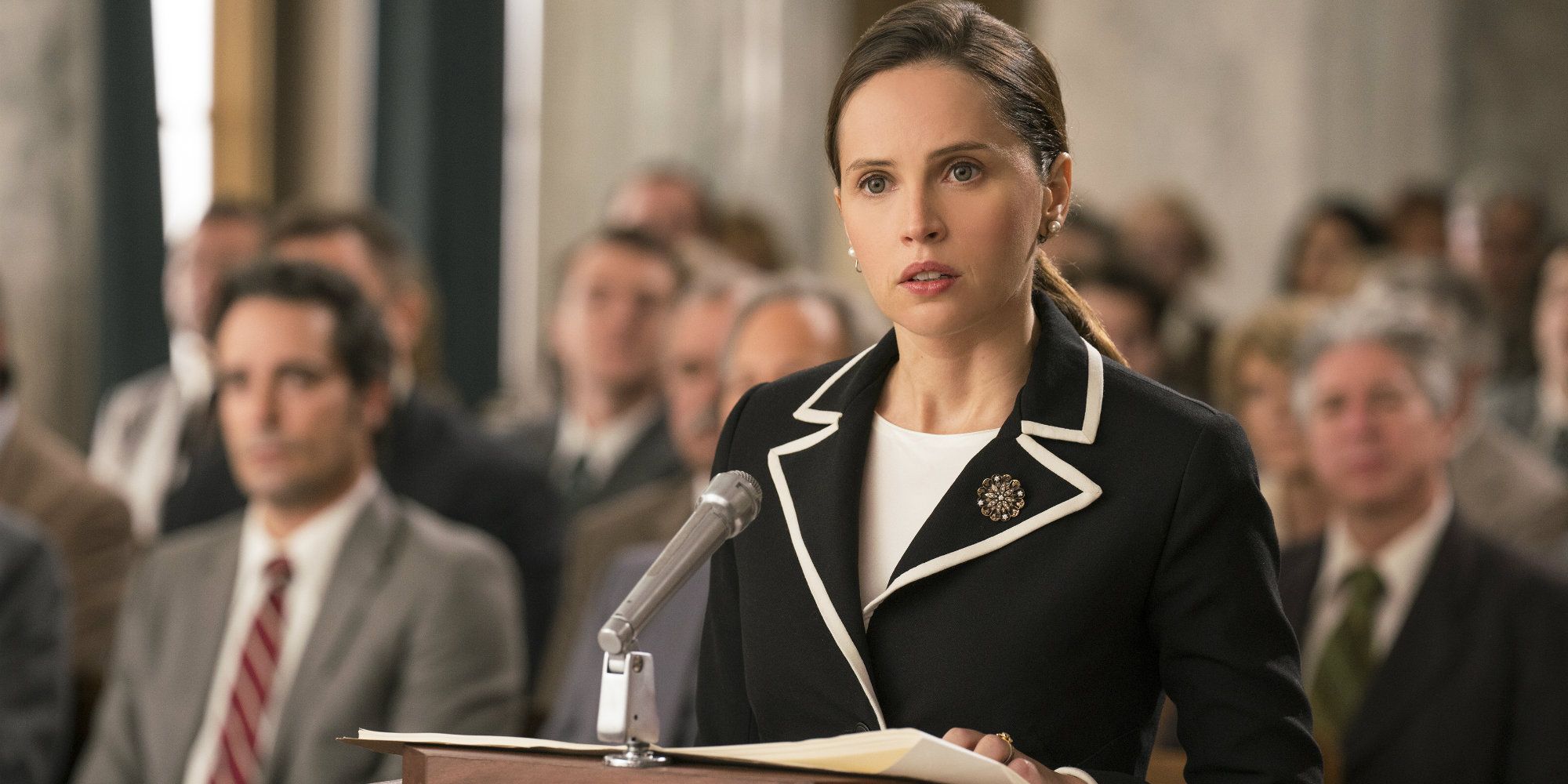On the Basis of Sex
The 2018 biopicOn the Basis of Sextells the tale of Justice Ruth Bader Ginsburg long before she was nominate to the Supreme Court . The picture follows her from her law school years to her first show before a royal court , giving some background to the ascent of this women ’s rights innovator .
Directed by Mimi Leder and written by Daniel Stiepleman , the film provides an reasoning but emotional look at how a woman became a legend . The movie is arguably even more relevant now than it was in 2018 in the wake of Justice Ginsburg ’s dying in September .
“A Court Ought Not Be Affected By The Weather Of The Day But Will Be By The Climate Of The Era.”
Ruth repeats Harvard Professor Freund ’s parole to Martin direct , and then repeat them to be indisputable . With these Book , they come to the ending that the law is and perpetually will be a work in progress , that the oppression and inequalities of the present daylight do n’t need to last evermore .
When work on the Moritz lawsuit over a decade later , Ruth recall this comment to Martin , postulating that they can use the same strategy to leaven why the case law of gender discrimination should no longer apply . He point out that the case in question at the time , Brown v. Board of Education , was a once - in - a - propagation case . " And we ’re the next generation , " Ruth respond .
“If The Law Differentiates Between People On The Basis Of Sex, Then How Will Women And Men Ever Become Equals?”
Whileteaching at Rutgers , Professor Ginsburg explains to her class a brief history of gender inequality in heed to the constabulary . Her students are outraged to discover that women can be fired from their jobs for get hitched with their husbands . Some ca n’t work overtime , and their social security department benefits do not provide for their kinfolk after their death .
She talk over the 1961 Supreme Court case of Gwendolyn Hoyt v. Florida , where the defense force , Dorothy Kenyon , asked this inquiry . The Court decided against Hoyt , making their answer clear : Men and women will never become compeer . Ginsburg dedicate her entire life to untie this declaration .
“The Times Have Already Changed.”
Ruth ’s daughter Jane already enjoy a bountifulness of freedom that Ruth did n’t have when she was a adolescent despite their being separated in age by only twenty twelvemonth .
After the two seek out the wiseness of the formidable Dorothy Kenyon , the civil right field attorney suggests that Ruth " alteration minds first , then change the jurisprudence . " Through Jane and her students , who hold rallies and borderland in the streets , demanding variety , Ruth realise that the body politic ’s head has already deepen and that now is the time to vary the law .
“John Adams Forgot The Ladies.”
When she come across the Reed v. Reed case , Dorothy Kenyon surprises Mel Wulf in his office . " In 1776 , " she tells him , " Abigail Adams spell her hubby a letter . ' As you compose this new constitution , ' she say , ' think of the ladies . ' Know what that mongrel go in front and did ? "
Her words paint a picture , but , more importantly , they are a call to men , the people privileged enough to be the ones create , ameliorate , and interpreting the police , asking them to do the right thing . The fact that only the virile perspective was represented in the country ’s effectual system since its beginning is what made it so difficult for women to have a voice in the law , and it ’s why gender equality at times seems so unattainable to this day .
“Who Was This For If Not For Me?”
The government offers a settlement to Charles Moritz , which will give him the money he would have received had his caregiver revenue enhancement tax write-off been granted but will not admit that surgical incision 214 , which discriminates between virile and distaff PCP , is unconstitutional .
As the situation feels hopeless and the case seems to be crumbling in Ruth ’s hands , she is prompt byher daughter Janethat this case is about more than Mr. Moritz or even the tax code . It ’s about the precedent . It ’s about all the cases that would do afterwards and about all the women who would be able-bodied to continue the fight because of her win today .
“You Don’t Get To Tell Me When To Quit.”
As the time issue forth for them to take the whirl , Mel Wulf is pleading with Ruth to convince Mr. Moritz to take the village , judging from what he hear of her in the moot motor hotel that she would n’t be persuasive enough to win the case .
In fact , Ruth would go on to be one of the most highly regard litigant in the land . She won the Moritz case and used it as a precedent for winning oodles of other instance that reformed or dismantled laws that discriminated between the gender . She also won five of the six cases she debate before the Supreme Court on behalf of the ACLU .
“[Exclusion Is] Not A Privilege. It’s A Cage.”
For centuries , man have written laws that severalise between men and women , laws that assume manpower are the breadwinners and women are the housewives .
During their moot royal court , where Ruth and Martin practice their oral arguments for the Moritz caseful , Ruth reference Appendix E , a listing of laws the government compose that discriminate based on gender , destine to show the evaluator the entire system that would be upturned if they ruled in Moritz ’s favor . Ruth channelise out that the jurisprudence intend to give womanhood the " perquisite " of being excused from men ’s obligations are really a cage and that " these laws are the bars . "
“Women’s Rights Are Civil Rights.”
Ruth remind Mel Wulf , the legal director of the American Civil Liberties Union , of this fact as she strain to convert him that the Moritz case is , in fact , within the mandatory of the ACLU . The line is passed over as cursorily as it was delivered , but it echoes a persuasion that becomes central to their argument : Gender and airstream are both " unalterable biologic traits . " In the post - polite Rights Movement era , it should have been clear that grammatical gender favouritism in the law of nature was unconstitutional .
The tangible Ruth Bader Ginsburg , after successfully arguing the Moritz case and write the brief for the landmark Reed v. Reed case , co - founded the ACLU ’s Women ’s Rights Project , for which she would go on to tear down laws that discriminate on the basis of sex .
“Nor Does The Word ‘Freedom.'”
This is Ruth ’s response to Judge Doyle when he doubts her debate ’s constitutional handgrip , saying " the parole ' woman ' does n’t look once in the U.S. Constitution . " She exit on to argue that part 214 , which stretch a tax deductive reasoning for a caregiver ’s earnings if the employer is a womanhood but not if he is an unmarried man , was never meant to single out against man and should be amended to include men in Mr. Moritz ’s position .
While the politics ’s counselor provide the judges with a list of all the laws that were at endangerment of being overturn if department 214 was ruled unconstitutional because they differentiate on the cornerstone of sex , Ruth argues that a ruling in Mr. Moritz ’s favour could topple a whole system of laws that blockade the next propagation from pursuing their dream .
“We’re Never Giving Up… I Am Spending My Life With You, Martin Ginsburg.”
While the film itself isnot a dear tale , the Latinian language between Ruth and Martin Ginsburg finds a magnanimous role in the story . The couple look natural law school together , during which time Martin is diagnosed with testicular cancer and given a 5 % probability of survival . Ruth , though , wo n’t hear of it , insisting to him , " Jane will have her father , and you will be a lawyer . "
The end of the film come up them 16 year later arguing the Moritz case together , surrounded by Jane and their young son , James . Over 50 age afterward , Martin died at 78 years one-time . The two are buried next to each other in Arlington National Cemetery .
NEXT : On The Basis Of Sex : 10 affair We Learned About Ruth Bader Ginsburg
